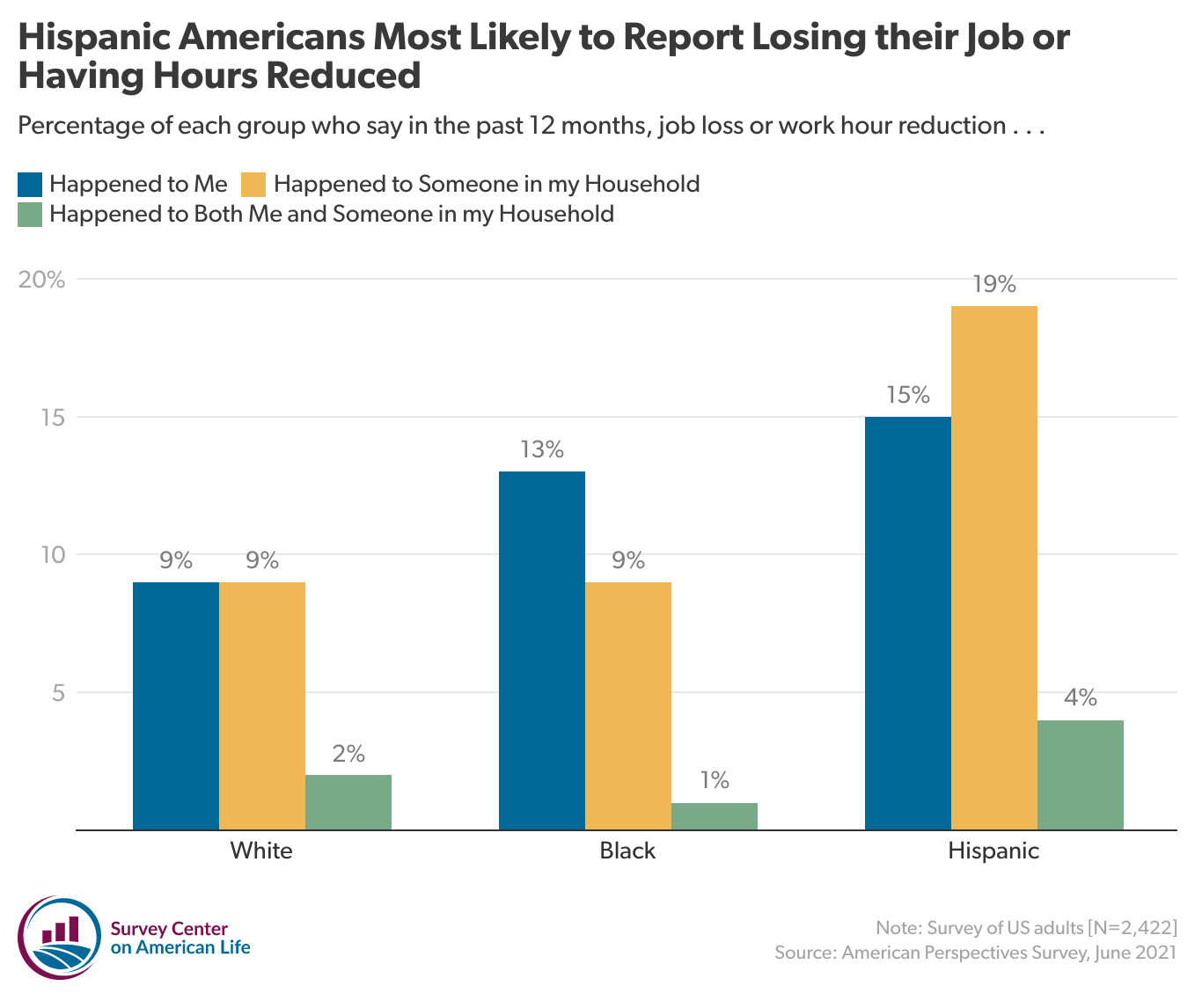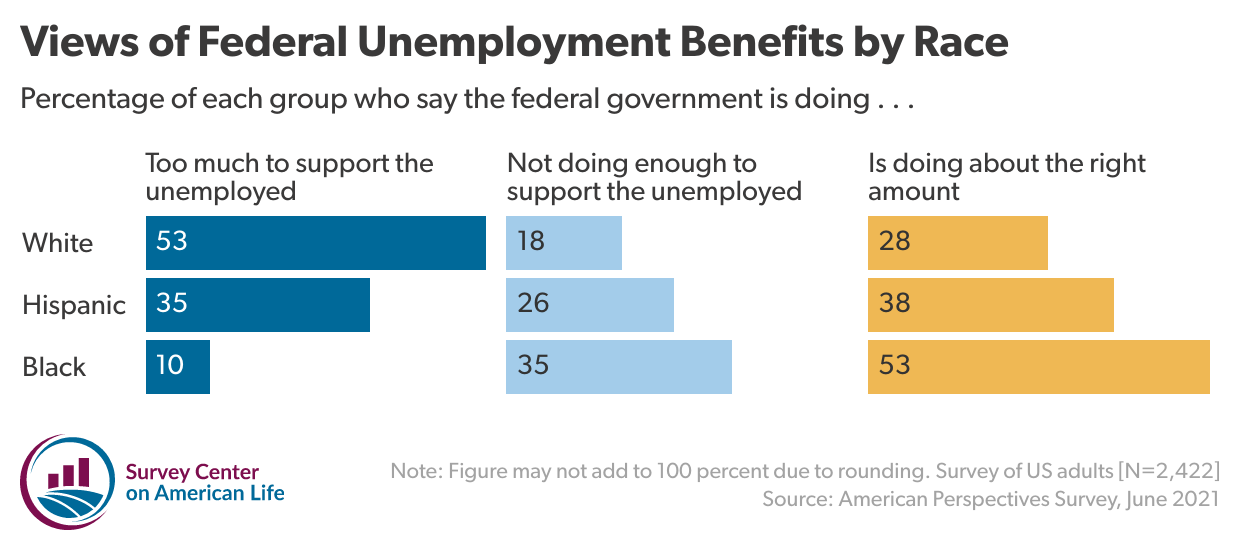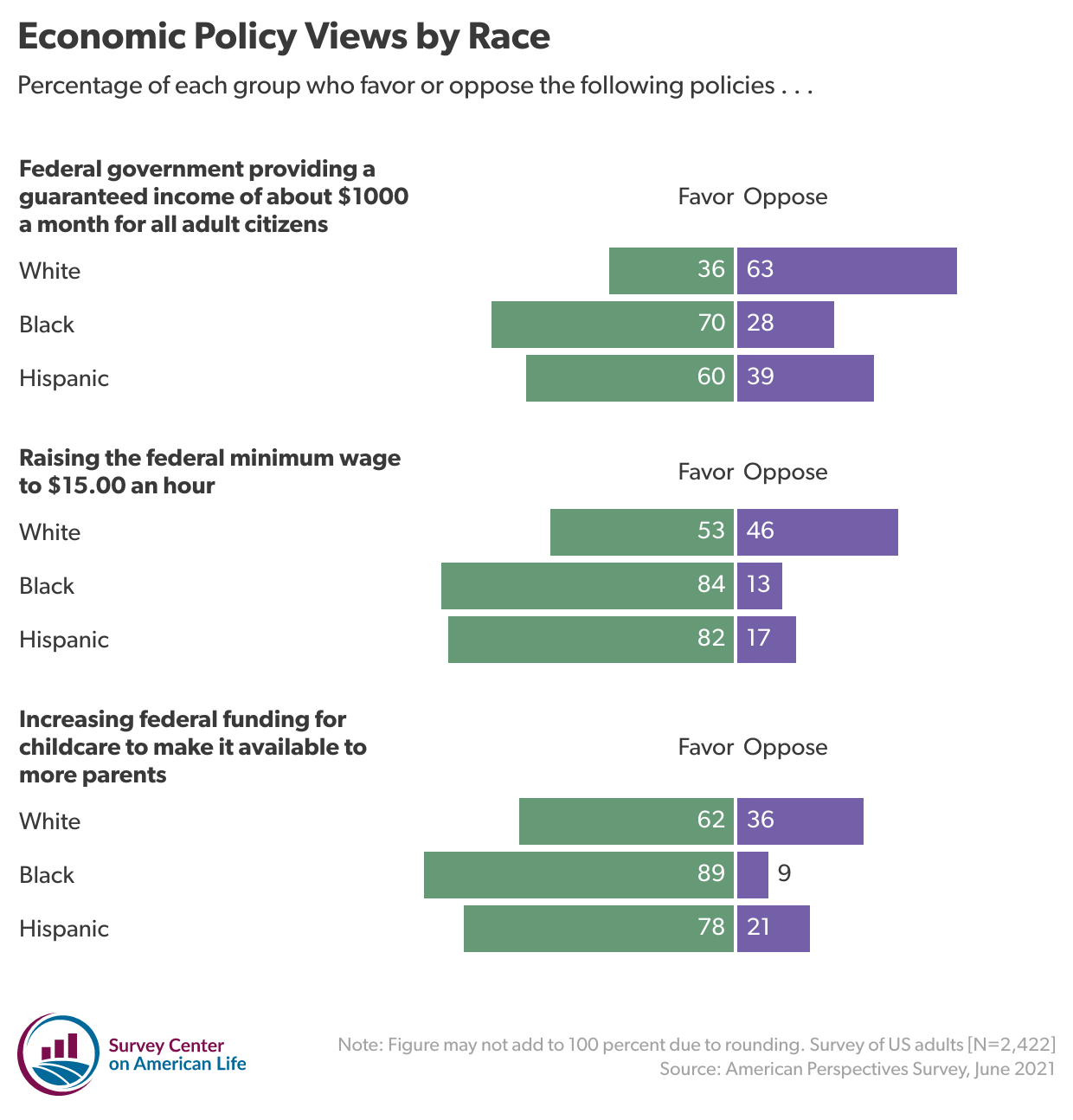Hispanics and the COVID Recession
Hard-hit and hard-working.

COVID-19 and its accompanying recession have been hard on everyone—but one demographic group seems to have suffered more economically than others. In looking through the data of AEI’s recent poll on employment attitudes and opportunities, it’s hard to escape the conclusion that when it came to illness-driven job and financial impacts there were actually two pandemics: one for Hispanics and one for just about everybody else.
Overall, our poll found that Hispanic respondents were twice as likely as whites (18 percent vs. 9 percent) and almost four times more likely than blacks, to report having contracted the virus. (CDC statistics say that COVID cases are 1.1 times as likely as among blacks as whites and 1.9 times as likely among Hispanics as whites.) Unsurprisingly, Hispanics were also much more likely to report knowing someone who had contracted the virus. Only 19 percent of Hispanics reported they did not know someone who had had the illness (roughly the same as whites), compared to 30 percent of blacks.
The stay-at-home orders and layoffs took a larger toll on Hispanic workers and families. Forty-four percent of Hispanics said either they or someone in their household lost their job or had hours reduced, compared to 24 percent of blacks and 22 percent of whites. To make ends meet, Hispanics dipped into their retirement accounts during the pandemic to pay their bills at a significantly higher rate, 24 percent, than either blacks (20 percent) and whites (18 percent). Hispanics were more likely than whites or blacks to have worked part-time and minimum-wage jobs or in positions where tips were the main source of compensation. Hispanics also reported greater economic distress on measures like “lack of money” and “cost of living,” with almost one-third citing housing and living costs as the most important problems facing their household.

To compensate for employment losses and financial burdens, Hispanics were the most aggressive in seeking out other work opportunities. Overall, Hispanics were the least likely not to have worked during the pandemic, at 31 percent versus 43 percent of blacks and 39 percent of whites. Even today, Hispanics have the highest percentage of employed individuals of any racial grouping surveyed, with 68 percent working either full- or part-time compared to 58 percent of whites and 53 percent of blacks.
Hispanics are also aggressively seeking new job skills or jobs. Twenty-three percent of Hispanics said they were enrolled in training programs, compared to 6 percent of whites and 9 percent of blacks. Sixteen percent of Hispanics are searching for a new full-time job, even if already employed, compared to 10 percent of whites and 12 percent of blacks. Hispanics were about half as likely to say they were retired (14 percent) compared to whites (29 percent) and blacks (22 percent).
And Hispanics believe work is important in multiple dimensions. Forty-four percent of Hispanics said their jobs were a key aspect of personal identity compared to 35 percent of blacks and 47 percent of whites. Sixty-one percent of Hispanics said enjoying your job was essential to having a fulfilling life versus 54 percent of whites and 58 percent of blacks.

Together, these numbers paint a portrait of a Hispanic population that places a high value on work, is seeking new skills aggressively, and does not want to spend time out of the workforce. Hispanics are also somewhat suspicious of what they see as overly generous unemployment insurance (UI) benefits. While not as critical as whites, Hispanics were three times more likely than blacks (35 vs. 10 percent) to say the government was doing too much to help the unemployed during the pandemic. Thirty-three percent of Hispanics said the UI benefits were too generous, compared to 13 percent of blacks. (Forty-six percent of whites agreed the UI benefits were excessive.)
At the same time, Hispanics are not, strictly speaking, libertarian boot-strappers. They are strongly supportive of other measures that seek to ameliorate challenges faced by working Americans. They favor a $15 dollar-per-hour minimum wage (82 percent favor vs. 53 percent of whites), more federal childcare spending (78 percent vs. 62 percent of whites) and a universal basic income (60 percent vs. 36 percent of whites).

In other words, Hispanics are conflicted on the degree to which government should intervene in the economy, even under crisis conditions, and tend to take a more skeptical view of benefits that might discourage work while supporting some measures, like higher minimum wages and childcare subsidies, that ease some of the struggles faced by working families.
Various hypotheses have been bruited as to why Hispanics were more supportive of Donald Trump’s re-election than his first run in 2016 (e.g., support for religious liberty and law-and-order policies). Based on this data, the deep impact of the COVID-19 recession on Hispanics, combined with strong, pro-work and anti-dependence attitudes, needs to be added to that list.


